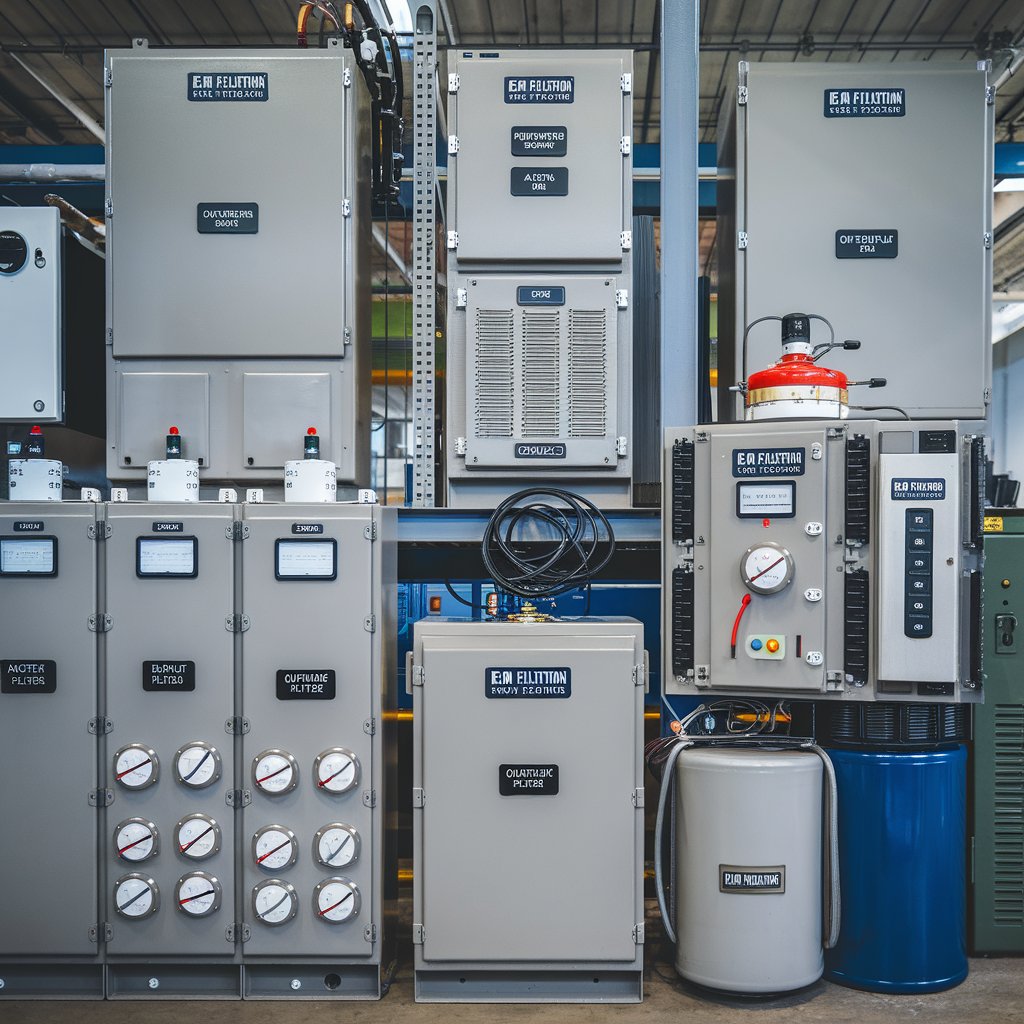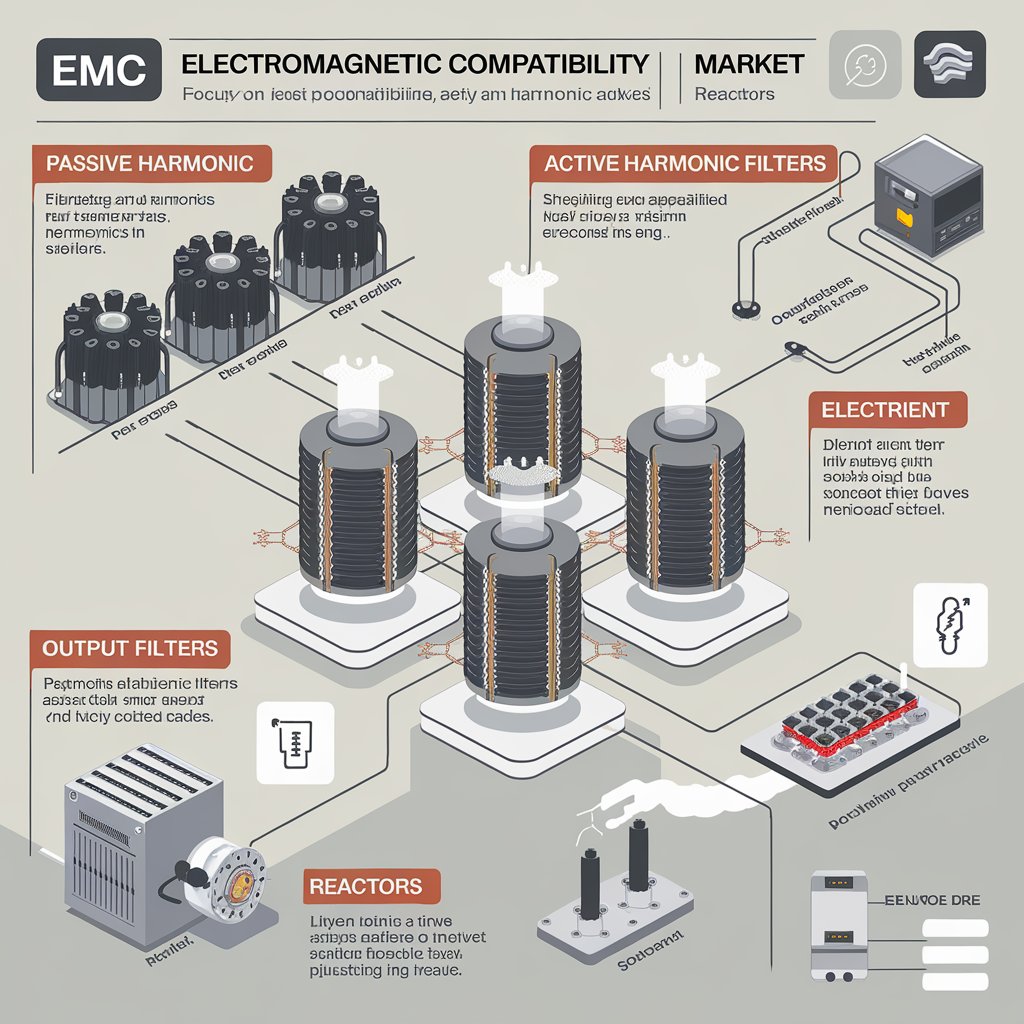The impact of AI on the EMC filtration industry is becoming increasingly profound as manufacturers face mounting challenges from more complex, high-speed, and densely packed electronic systems. As traditional methods struggle to keep pace with the demands of modern applications, AI is emerging as a game-changing technology across every stage of EMC filter development. From accelerating initial design through machine learning-driven simulations to automating compliance testing and enhancing quality control on the production line, AI is reducing time-to-market and minimizing costly design errors. By leveraging historical test data and real-time sensor feedback, AI enables predictive modeling and intelligent optimization, ensuring EMC filters perform reliably under a variety of operating conditions. This shift not only enhances performance and compliance but also empowers the industry to innovate faster and more effectively in an increasingly electromagnetic world.

AI in EMC Filter Design and Simulation
AI is having a transformative impact on the design process of EMC filters. Traditionally, engineers would rely on iterative modeling and manual tuning to develop filters that suppress unwanted EMI while preserving signal integrity. Now, AI-powered algorithms can simulate thousands of potential topologies in a fraction of the time. Using historical design data and machine learning models, these systems predict optimal component values, layouts, and configurations tailored to specific EMI challenges.
Generative design tools, enhanced with AI, propose efficient component combinations and layout solutions that balance multiple parameters—attenuation levels, form factor constraints, thermal limits, and cost targets. Engineers can feed design goals into these platforms and receive validated solutions that drastically shorten development time. Moreover, AI-assisted electromagnetic simulation tools provide real-time feedback on EMI suppression effectiveness, improving accuracy without the need for repeated physical prototypes.
Smarter Compliance Testing and Validation
EMC compliance testing is often time-consuming and resource-intensive, requiring specialized equipment and facilities. AI is revolutionizing this aspect by automating test sequences, identifying potential failure points, and enhancing the interpretability of test results. Machine learning models trained on historical test data can detect patterns that indicate non-compliance and suggest design adjustments before formal testing begins.
AI-enhanced spectrum analyzers can isolate problematic frequencies, distinguish between different types of interference (common-mode, differential-mode, or externally coupled), and even detect low-level anomalies that traditional tools might overlook. This leads to faster testing cycles, reduced human error, and more reliable certification outcomes. AI systems can also generate auto-filled compliance documentation, simplifying regulatory reporting and audit readiness.
Download PDF Brochure @ https://www.marketsandmarkets.com/pdfdownloadNew.asp?id=172300360
Quality Control and Smart Manufacturing
In manufacturing, AI is enabling more consistent quality in EMC filter production. Computer vision systems, integrated with AI, perform real-time visual inspections, identifying surface defects, misalignments, or assembly inconsistencies that might degrade filter performance. Alongside electrical parameter monitoring, AI can spot subtle deviations in impedance, capacitance, or inductance values—well before they translate into field failures.
Predictive maintenance algorithms also help manufacturers monitor machinery conditions and detect early signs of equipment wear that could impact production quality. With AI-driven analytics, factories can implement adaptive process controls, reducing scrap rates and ensuring that every filter produced meets performance and safety standards.

RF Noise Profiling and EMI Source Identification
AI’s application extends into the field, where systems operate in noisy, unpredictable electromagnetic environments. AI algorithms are increasingly being used to create RF noise profiles of real-world settings—identifying interference sources, characterizing EMI behavior, and guiding the placement or tuning of EMC filters. For example, in automotive or industrial environments, AI can differentiate between transient spikes from motor controllers and consistent harmonics from switching power supplies, allowing for filter customization based on actual interference sources.
These tools also support in-field diagnostics, enabling maintenance teams to quickly identify and correct EMI issues during device operation, reducing downtime and improving overall system reliability.
Customization for Emerging Applications
The proliferation of electric vehicles (EVs), 5G, IoT devices, and high-speed digital electronics demands tailored EMC filtering solutions. These markets present unique EMI challenges that require application-specific designs. AI supports filter manufacturers by automating design customization based on user-defined constraints such as board space, load behavior, thermal profiles, and regulatory targets.
AI-based configuration engines allow customers to input their system specifications and receive instant filter recommendations—optimized for performance and manufacturability. This agility enables manufacturers to serve fast-moving industries without compromising reliability or compliance.
Cybersecurity Meets EMC: A New Frontier
With growing concerns about side-channel attacks and data leakage through unintended electromagnetic emissions, AI is becoming essential in the intersection between EMC and cybersecurity. AI tools can simulate potential attack vectors, analyze EM radiation from digital systems, and assess vulnerabilities in shielding or filter design. These insights are especially valuable in sectors like defense, finance, and healthcare, where data security is paramount.
By proactively addressing both electromagnetic and data security concerns, AI-enabled EMC design ensures robust protection across both physical and digital layers of modern electronics.
Challenges and Considerations
Despite its vast potential, the integration of AI into the EMC filtration industry is not without hurdles. High-quality training data is essential to build accurate models, and not all organizations have access to extensive historical datasets. There’s also a learning curve for engineers unfamiliar with AI tools, requiring upskilling and process adaptation. Moreover, regulatory authorities must be assured of the reliability and explainability of AI-generated results, especially when they influence safety-critical certifications.
Interoperability between legacy EMC test tools and new AI platforms can also present technical integration challenges. However, as industry standards evolve and AI tools become more user-friendly, these barriers are expected to diminish over time.
The AI impact on the EMC filtration industry is deep and multifaceted. By streamlining design, accelerating compliance, improving manufacturing consistency, and enabling real-time noise diagnostics, AI is driving a new era of smart EMC engineering. As electronics become more sophisticated and regulatory requirements more stringent, AI offers the tools to keep pace—delivering better performance, faster development, and stronger reliability.
The EMC filters of the future will not just suppress noise—they will be intelligently designed, tested, and optimized through data-driven, AI-powered systems. For engineers and manufacturers alike, this represents a fundamental shift from reactive problem-solving to predictive, precision-driven innovation.
About MarketsandMarkets™
MarketsandMarkets™ has been recognized as one of America’s Best Management Consulting Firms by Forbes, as per their recent report.
MarketsandMarkets™ is a blue ocean alternative in growth consulting and program management, leveraging a man-machine offering to drive supernormal growth for progressive organizations in the B2B space. With the widest lens on emerging technologies, we are proficient in co-creating supernormal growth for clients across the globe.
Today, 80% of Fortune 2000 companies rely on MarketsandMarkets, and 90 of the top 100 companies in each sector trust us to accelerate their revenue growth. With a global clientele of over 13,000 organizations, we help businesses thrive in a disruptive ecosystem.
The B2B economy is witnessing the emergence of $25 trillion in new revenue streams that are replacing existing ones within this decade. We work with clients on growth programs, helping them monetize this $25 trillion opportunity through our service lines – TAM Expansion, Go-to-Market (GTM) Strategy to Execution, Market Share Gain, Account Enablement, and Thought Leadership Marketing.
Built on the ‘GIVE Growth’ principle, we collaborate with several Forbes Global 2000 B2B companies to keep them future-ready. Our insights and strategies are powered by industry experts, cutting-edge AI, and our Market Intelligence Cloud, KnowledgeStore™, which integrates research and provides ecosystem-wide visibility into revenue shifts.
To find out more, visit www.MarketsandMarkets™.com or follow us on Twitter , LinkedIn and Facebook .
Contact:
Mr. Rohan Salgarkar
MarketsandMarkets™ INC.
1615 South Congress Ave.
Suite 103, Delray Beach, FL 33445
USA: +1-888-600-6441
Visit Our Website: https://www.marketsandmarkets.com/